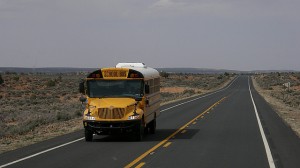While I’ve been gadding about the country, as my mother used to say, I’ve been squirreling away some scraps of paper on which I noted items of possible interest.

Like the rude rodents on my lawn, this squirrel is laughing at me. (Navicore, Flickr Creative Commons)
First, speaking of squirrels, can you answer this question for me? Have you ever seen a squirrel RETRIEVE one of the nuts that it buried for a winter’s day? The bushy-tailed bandits in my backyard steal peanuts that we put out for the songbirds in the “bird garden,” carry them over to the lawn, and dig craters into it before dropping the nuts and pawing dirt and grass remnants over them.
But not once have I seen a squirrel return when the ground is frozen, the snow is high, and it’s presumably hungry as a, well, squirrel whose jowls aren’t quite as puffy, to fetch its stash. Fortunately the peanuts don’t sprout in the spring. Neither, however, does the grass in those spots. There isn’t any.
****
Where’s the For?
My colleague Julie Taboh passed me a Washington Post article on which she scribbled the following note, replete with exclamation points:
TED! The importance of prepositions!

Let’s see. Red, blinking lights and a big-old stop sign next to the driver mean . . . speed right on by? Try again. (Svadilfiri, Flickr Creative Commons)
It seems that a fellow named John Mendez, of Woodbridge, Virginia, was having a bad day. His tools had just been stolen, and he had been laid off from his job. So he was likely out of sorts when he came upon a school bus, loaded with children, that was stopped with its red lights flashing and its “STOP” sign extended outside the driver’s window.
Whether he was or wasn’t preoccupied, Mendez drove right past the bus and into the clutches of a waiting police officer, who cited him for reckless driving — a serious charge that carries the potential of jail time and a hefty fine.
In that situation, most people I know would have gone before the judge, pleaded “guilty with an explanation,” and asked for leniency, considering the circumstances.
Mendez not only pleaded “not guilty,” he beat the rap, despite clear evidence that he had, indeed, lurched around a stopped school bus, potentially endangering the lives of little ones and their parents who could have popped out from in front of the bus.
Mendez’s defense was ingenious and indisputable.
He simply didn’t do what he was charged with, and he could prove it.
Here’s the 40-year-old Virginia statute covering the situation:
A person is guilty of reckless driving who fails to stop, when approaching from any direction, any school bus which is stopped on any highway, private road or school driveway for the purpose of taking on or discharging children.
Nope, never did such a thing, Mendez told the court.
And the judge reluctantly agreed with him, acquitted him, and sent him on his merry way without any sort of penalty.
How is that possible? Read the statute again, slowly, word for word.
If you look carefully, because of a single missing preposition, perhaps “for,” the language says nothing at all about passing stopped school buses.
As it reads, one can be deemed reckless for stopping the school bus. The statute says nothing about failing to stop for it!
Mendez didn’t stop the bus, he pointed out. It was already at a standstill, idling. He was, the judge had to agree, as innocent as the day is long.
And the way things work in state bureaucracies, the law can’t be changed until the newly elected Virginia legislature convenes in January; even worse, any amended law — one with the added “for” — won’t take effect until June.
I doubt that means that drivers will now whiz past stopped school buses with impunity in Virginia, since I’m sure law enforcement will find something besides reckless-driving charges to bring in such circumstances.
But what happened in Woodbridge says something about both John Mendez’s astute eye for detail and about, as Julie puts it, “the importance of prepositions.”
As she and I later discussed, wee prepositions are tricky, especially for immigrants for whom English is a second language. They often stick the wrong one into sentences because the wording would be quite different in their native languages.
My next-cubicle neighbor, Greek-born Penelope Poulou, gave me an illustration. Americans say, “I believe in you” in English. But the equivalent in Greek, if you tried to translate it word for word into English, would be, “I believe to you.”
No doubt lots of English-learning newcomers have said words to the effect of, “I believe to you” and been sternly corrected or even laughed at.
 Prepositions aren’t consistent, even IN English. Why, for instance, do we say we’re “on the train,” but we’re “in the car”? We’re in the train, too, of course. But if we said we were “on the car,” that would conjure up images of silent-film slapstick stars balancing atop an automobile’s roof in heavy traffic.
Prepositions aren’t consistent, even IN English. Why, for instance, do we say we’re “on the train,” but we’re “in the car”? We’re in the train, too, of course. But if we said we were “on the car,” that would conjure up images of silent-film slapstick stars balancing atop an automobile’s roof in heavy traffic.
The Virginia school-bus law didn’t use the wrong word, of course. It left a key little word out. In either case, be on the lookout for sneaky, powerful prepositions.
****
Congratulations! It’s a Superstar!
The pushy-parent phenomenon is nothing new in America. Proud parents have been known to pay big bucks, pull strings, and hover over teachers and coaches to make sure their little darlings shine and get ahead.
Hence the term “helicopter mom.” Or dad.
They consider it parental encouragement. The teachers and principals and coaches who must face the visits, phone calls, and scoldings from obsessively doting parents call it bullying, or worse.
And things may be getting out of hand. The New York Times reports that parents are buying up “baby sports DVDs” as fast as they reach the shelves or the Web.
Baby sports DVDs?
These are exercise and sports programs aimed at toddlers, infants — even newborns — designed to give them an edge when they’re old enough to take to the soccer or Little League baseball field. “We hear all the time from families that have been with us, ‘Our kids are superstars when they’re in middle school and they get into sports,’” the developer of one training program for babies as young as 6 months told the Times.
The newspaper printed a photo of three 2-year-olds, all in uniform, sitting with soccer balls before their smiling parents as they await the start of drills. Two-year-olds.
This is “Baby Mozart” stuff, Bob Bigelow, a former pro basketball player and critic of competitive sports for tots, told the Times. “You play Mozart for the baby in the womb, and it comes out some sort of fine arts major,” he scoffed. “There are millions of American parents worried to death that their children might fall behind somebody else’s kid.”
So let the competition begin — really early.
When the stakes down the road include possible full scholarships to college, or even multi-million dollar professional sports contracts, anything is possible.
I can see it now: leagues of little fetuses, listening, in utero, to inspirational pep talks from coaches, and to recordings of grunting athletes and frenzied sports crowds via speakers strapped to their mothers’ bellies.
“My baby kicked harder than your baby,” one proud parent will say to another.
You thought Americans were a competitive lot. Just wait until little Brad and Brittany, the Titans of the Nursery, grow up and kick butt.
****
Inhospitable Atmosphere
I opened with a question (about squirrels) and will close with one.
All the tekky companies that advertise on the radio keep touting their “cloud computing” capabilities. Will someone please write in and explain what in the world that is in REALLY basic layman’s terms? I’m in a fog when I listen to these ads. And there’s zero visibility when I look online to try to figure this out. Cirrusly! I — and maybe my readers — need your help.
Ted's Wild Words
These are a few words from this posting that you may not know. Each time, I'll tell you a little about them and also place them into a cumulative archive of "Ted's Wild Words" in the right-hand column of the home page. Just click on it there, and if there's another word that you'd like me to explain, just ask!
Gad, or gad about. To wander somewhat aimlessly. In fact, a person who does so, just for pleasure, is called a “gadabout.”
Impunity. Freedom from, or without fear of, penalty or punishment. The word is usually paired with a “with.” He said it with complete impunity.
Slapstick. Exaggerated physical comedy, often involving pratfalls or pies to the face. Slapsticks were actual implements of early vaudeville comedy. They were paddles of sorts, made of two pieces that slapped together with an exaggerated clap when applied by one comedian to another. A “pratfall,” by the way, is a sensational, backward fall onto your buttocks, often deliberately for comic effect.






